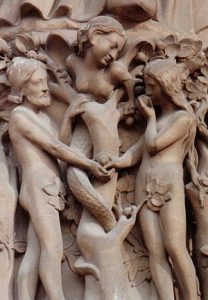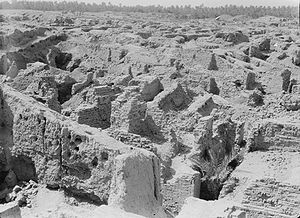Margaret Barker writes in “The Older Testament” that “the Adam and Eve myth in its present form is not integral to the Old Testament. It has all the signs of being a late addition” (p.23). Thus:

- The story is isolated. Not a single prophet, psalm or narrator makes any reference to this story of their creation and Fall (von Rad)
- Later biblical narratives stress the value of atonement. Sin is a matter of momentary transgressions of the Law. It is as if the narrative of the Fall, and its messages for the nature of mankind and sin, are unknown to the rest of the OT. (Eichrodt)
I have been partial to the argument that the Jewish Scriptures as we have them originated from Persian times (albeit our version of course dates from the Masoretic Text, post 70 c.e.). I suspect many of the pre-Abraham stories were scarcely matters of interest or knowledge among the various scribal schools of the province of Jehud.
And Babel, too
I am reminded of another suggestion that the story of the scattering of peoples through language confusion at Babel first surfaced some time in Hellenistic era. As it stands, it informs readers that Babylon was left deserted and unfinished. Every reader who comes to that point must deep down, even if only for a nanosecond, wonder how that fits with the later power of Babylon waging a war of conquest against the Kingdom of Judah. But if the author of that story knew only the Babylon of the third-century b.c.e. after it had been to a very large extent deserted, he could have been forgiven for thinking he was composing a “just so” etiological tale of how it came to be that way.

